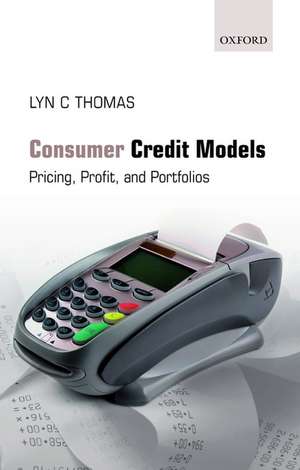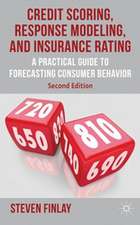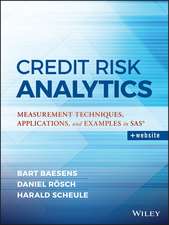Consumer Credit Models: Pricing, Profit and Portfolios
Autor Lyn C. Thomasen Limba Engleză Hardback – 28 ian 2009
Preț: 601.43 lei
Preț vechi: 733.46 lei
-18% Nou
Puncte Express: 902
Preț estimativ în valută:
115.08€ • 120.15$ • 95.25£
115.08€ • 120.15$ • 95.25£
Carte tipărită la comandă
Livrare economică 05-19 aprilie
Preluare comenzi: 021 569.72.76
Specificații
ISBN-13: 9780199232130
ISBN-10: 019923213X
Pagini: 400
Ilustrații: 77 line drawings
Dimensiuni: 160 x 240 x 26 mm
Greutate: 0.72 kg
Editura: OUP OXFORD
Colecția OUP Oxford
Locul publicării:Oxford, United Kingdom
ISBN-10: 019923213X
Pagini: 400
Ilustrații: 77 line drawings
Dimensiuni: 160 x 240 x 26 mm
Greutate: 0.72 kg
Editura: OUP OXFORD
Colecția OUP Oxford
Locul publicării:Oxford, United Kingdom
Notă biografică
Lyn Thomas is Professor of Management Science at the School of Management at the University of Southampton and has for the last twenty five years been active as a researcher and consultant in the consumer credit area. He has co-authored and edited books and written over forty papers on consumer credit. He was the founder of the Credit Research Centre at the University of Edinburgh and has been joint organiser of the ten international Credit Scoring conferences. He is one of the principal investigators running the Quantitative Financial Risk Management Centre, a Past President of the Operational research Society, a consultant for several international financial organisations, and advisor to UK government departments. Professor Thomas is a Fellow of the Royal Society of Edinburgh, Institute of Mathematics and its Applications, and Operational Reseach Society.














